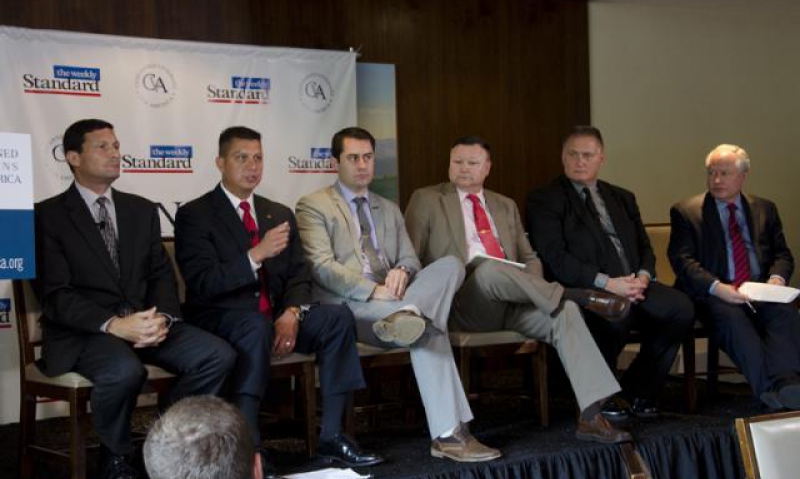
Congress should visit VA Regional Offices to get at the core of the claims backlog problem.
At a June 20 discussion in Washington on how to reform the Department of Veterans Affairs, several panelists and members of Congress shared their views on what needs to be done to eliminate the department’s long-standing disability claims backlog.
Peter Gaytan, executive director of The American Legion in Washington, explained to the audience that the Legion has a unique perspective because it has a national cadre of about 2,600 accredited representatives who help veterans in developing their disability claims.
“They see the face that’s attached to each disability claim,” Gaytan said. “What we’re seeing at The American Legion is that personal face, those veterans who are suffering because the discussions and debates within the Beltway are not resulting in positive change that affects the lives of American veterans.”
While The American Legion is actively involved in Washington discussions about the claims log and may other veterans issues, Gaytan said the Legion is intent on “carrying the voice of the veteran. We don’t want to get lost in the policy discussions and the media stories, and the debates here. We want to make sure we see real progress, and that real progress comes through... understanding where the problems exist.”
The real problem behind the claims backlog, Gaytan said, is at VA Regional Offices across the country. “If you go to a Regional Office, you’ll see where the problems exist. Leadership at VA needs to understand the problems that exist at the Regional Offices are different from office to office.”
Gaytan explained that teams of American Legion experts have been traveling to several VA Regional Offices throughout the past few months. They have been interviewing claims processors, reviewing claims files and identifying best practices at each office. The Legion team is nearly done with its visits and will soon compile a report on its findings.
“The first step is to educate ourselves beyond the Beltway,” Gaytan said. “What we need to do is realize where the successes lie. We have seen successes in the FDC (fully developed claim) process and it’s because we’ve gone out and asked where the problems are. We’ve recognized our own shortfalls and we’ve come together with the VA to help improve FDCs. And we’re seeing those numbers go down, in terms of wait times.”
Political analyst Bill Kristol, moderator for the panel, asked Gaytan if there was “one thing that should be done that isn’t being done?” He wondered particularly if there were something that VA Secretary Eric Shinseki could do?
“There’s no real solution to this complex problem,” Gaytan said. “What is key is communication. If you could legislate communication, that would be great... . But when you communicate, you have to understand what message you’re delivering. You can’t understand it by sitting behind a desk within the Beltway. You’ve got to go to the Regional Office. You’ve got to be able to understand the complexities of those staffers, who are dealing with an overwhelming amount of claims.”
Rep. Jeff Miller, R-Fla., and Sen. Richard Burr, R-N.C., and former VA Secretary Anthony Principi also spoke at the event, co-hosted by Concerned Veterans for America (CVA) and The Weekly Standard. Other panelists included Darin Selnik of CVA, Mark Flatten of The Washington Examiner, Stewart Hickey, executive director of AMVETS, and Tom Tarantino of Iraq & Afghanistan Veterans of America.
- Veterans Benefits

